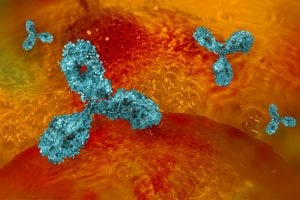
Monoclonal antibody (MAb) capacity remains roughly in balance with industry’s needs but firms should look to procure manufacturing services early to guarantee their projects, says CDMO Avid Bioservices.
Twelve months ago, Peregrine Pharmaceuticals sold its internal monoclonal antibody (MAb) programs and became a pure contract development and manufacturing organization (CDMO) under the Avid Bioservices title.
The CDMO has GMP facilities in Orange County, California offering biopharma firms both stainless steel and single-use biologics manufacturing services. As such, the firm spoke to BioProcess Insider about industry’s current and future capacity needs.

Image: iStock/mirror-images
According to CEO Roger Lias, the mammalian biologic CDMO space is growing at an annual rate of 15-16% and is driven primarily by monoclonal antibody (MAb) and antibody derivatives. In the recent Bioplan Associates survey, roughly half of respondents were still concerned about capacity availability but Lias said careful planning can avoid firms being left out without capabilities.
“While on a macro level I think that global supply/demand is roughly in balance for monoclonal antibodies and derivatives, it can still be hard to find available capacity on a project-specific basis based on timelines, technical specifics, regulatory requirements, phase of development, geography, cultural fit and the many different criteria that influence buying decisions in this highly complex business with long sales cycles,” he told us.
“With this in mind, I would advise that companies should start early and secure capacity because on a project-specific basis there is no guarantee that you will find what you need in the timeframe you require.
“Due to (a) previous company history and (b) the recent commissioning of the state-of-the-art Myford facility, Avid is in the unusual (but favorable) position of having capacity relatively immediately available.”
Asian capacity
Like Avid, other CDMOs have invested in capacity over the past few years, including Catalent, Emergent, Fujifilm, Patheon in the US.
But many of the largest investments in capacity are coming from Asia. Samsung BioLogics and Celltrion have hundreds of thousands of liters of capacity available in South Korea, while WuXi BioLogics, Lonza, and others have announced plant construction in China. (It must be noted WuXi also announced plans to build its first plant in the US last year.)
But the increased investment in Asia does not represent a meaningful threat for Avid, Lias told us.
“Many of the investments being made in Asia are targeted at domestic Asian markets or for very large scale capacity needs,” he said. Furthermore, he continued, Avid is relatively small and not currently proactive in Asia.
“Due to Avid’s long history of commercial compliance the company may occasionally compete with the big players for some projects that fit with our available capacity.”
About the Author
You May Also Like

schedl_b_and_w.jpg?width=100&auto=webp&quality=80&disable=upscale)
schedl_b_and_w.jpg?width=400&auto=webp&quality=80&disable=upscale)



